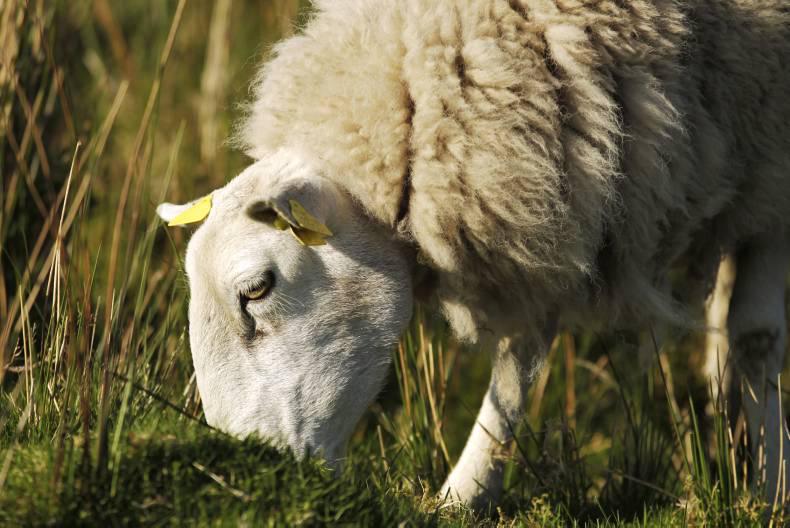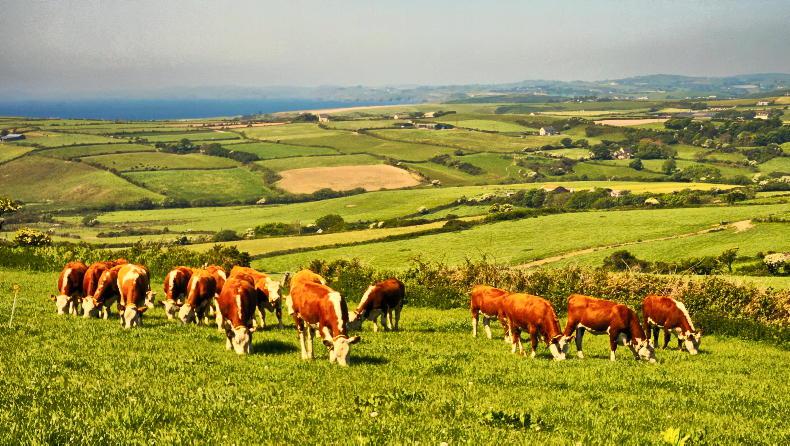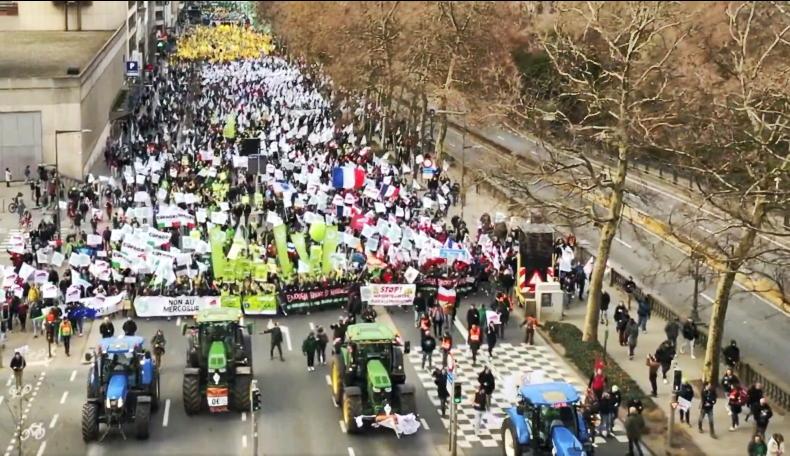In 2010, Michael O'Connor from Nenagh, Co Tipperary, claimed an area of land in his Basic Payment that included rented commanage, which court documents show amounted to 46ha.
The Department of Agriculture subsequently inspected the farm and found that "there was no evidence of farming activity on this land", which was "overgrown" and had animals "only put in a few days prior to this visit".
As a result of the inspection, O'Connor was found to have claimed more than 20% ineligible land, which disqualified him from receiving any of his single farm disadvantaged area payments for 2010. According to documents submitted by the farmer's lawyer, this amounted to €147,000.
Additional fine
O'Connor requested a review of the inspection, which confirmed the decision and added that a supplementary fine equal to the value of the single payment on the number of hectares over-declared would also be recouped from his payments over the next three years.
O'Connor unsuccessfully appealed the review under the Agricultural Appeals Act between 2012 and 2103, before making a appeal to the High Court in 2013.
This was the first case of its kind in Ireland.
Absence of required paperwork
High Court judge Michael White agreed with O'Connor that the Department failed to present him with the record of his inspection for signature and to provide him with a report following his inspection, as required under European law. The Department was also found to have broken the law in failing to document the need for further inspections and to address valid issues in the appeals process.
Finally, although this is not a legally binding document, Judge White ruled that inspectors broke the commitment made under the Farmers' Charter and Action Plan 2009-2011 to issue each farmer with an explanatory card at the start of each on-the-spot inspection. The Department "had very little regard for fair procedures as these guidelines in respect of the SPS inspection were ignored completely," according to the judgement made last month and published in full this week.
Land ineligibility not questioned
The Department argued that, notwithstanding that they did not have the required paperwork, there was still enough evidence against O'Connor. If his appeal was upheld, they argued, he would be getting a payment he was not entitled to, which would not be in the public interest.
The judge agreed with this and pointed out that it was not questioning the Department's ability to decide on land eligibility, but rather its procedures and appeals process.
The inspection that led to the imposition of the SPS penalty was procedurally flawed
In his judgement, Judge White said that he could not second-guess the findings of the inspectors who carried out the inspection on the commonage land.
"The court is faced with the situation that the inspection that led to the imposition of the SPS penalty was procedurally flawed and the legalities of this were not dealt with on review or on appeal," he ruled.
However, the High Court accepted the Department's argument "that procedural flaws should not lead to the exclusion of substantive evidence that the appellant was not entitled to include the commonage in his SPS application, and thus if his appeal was upheld, he would be getting payment he was not entitled to which would not be in the public interest."
Entitled to basic payment
The judge ruled that the inspection was so "procedurally flawed" that the farmer should be entitled to his basic payment for his eligible land of 160.57ha in 2010, which the Irish Farmers Journal undertands is in excess of €100,000, but should not be paid any sum for the wrongly claimed commonage. He is liable for the 5% sanction imposed as a result of a separate cross-compliance check on his cattle.
"The court has found serious procedural flaws but is conscious that there was considerable evidence that the appellant should not have included [the land] in his application ... The appellant should be entitled to payment of the subsidy on the extent of the lands which qualified for payment ... but should not be paid any sum for the commonage," Judge White ruled.
Aine Hennessy contributed reporting for this story.
Read more
Legal query: Right to compensation for sick calves
In 2010, Michael O'Connor from Nenagh, Co Tipperary, claimed an area of land in his Basic Payment that included rented commanage, which court documents show amounted to 46ha.
The Department of Agriculture subsequently inspected the farm and found that "there was no evidence of farming activity on this land", which was "overgrown" and had animals "only put in a few days prior to this visit".
As a result of the inspection, O'Connor was found to have claimed more than 20% ineligible land, which disqualified him from receiving any of his single farm disadvantaged area payments for 2010. According to documents submitted by the farmer's lawyer, this amounted to €147,000.
Additional fine
O'Connor requested a review of the inspection, which confirmed the decision and added that a supplementary fine equal to the value of the single payment on the number of hectares over-declared would also be recouped from his payments over the next three years.
O'Connor unsuccessfully appealed the review under the Agricultural Appeals Act between 2012 and 2103, before making a appeal to the High Court in 2013.
This was the first case of its kind in Ireland.
Absence of required paperwork
High Court judge Michael White agreed with O'Connor that the Department failed to present him with the record of his inspection for signature and to provide him with a report following his inspection, as required under European law. The Department was also found to have broken the law in failing to document the need for further inspections and to address valid issues in the appeals process.
Finally, although this is not a legally binding document, Judge White ruled that inspectors broke the commitment made under the Farmers' Charter and Action Plan 2009-2011 to issue each farmer with an explanatory card at the start of each on-the-spot inspection. The Department "had very little regard for fair procedures as these guidelines in respect of the SPS inspection were ignored completely," according to the judgement made last month and published in full this week.
Land ineligibility not questioned
The Department argued that, notwithstanding that they did not have the required paperwork, there was still enough evidence against O'Connor. If his appeal was upheld, they argued, he would be getting a payment he was not entitled to, which would not be in the public interest.
The judge agreed with this and pointed out that it was not questioning the Department's ability to decide on land eligibility, but rather its procedures and appeals process.
The inspection that led to the imposition of the SPS penalty was procedurally flawed
In his judgement, Judge White said that he could not second-guess the findings of the inspectors who carried out the inspection on the commonage land.
"The court is faced with the situation that the inspection that led to the imposition of the SPS penalty was procedurally flawed and the legalities of this were not dealt with on review or on appeal," he ruled.
However, the High Court accepted the Department's argument "that procedural flaws should not lead to the exclusion of substantive evidence that the appellant was not entitled to include the commonage in his SPS application, and thus if his appeal was upheld, he would be getting payment he was not entitled to which would not be in the public interest."
Entitled to basic payment
The judge ruled that the inspection was so "procedurally flawed" that the farmer should be entitled to his basic payment for his eligible land of 160.57ha in 2010, which the Irish Farmers Journal undertands is in excess of €100,000, but should not be paid any sum for the wrongly claimed commonage. He is liable for the 5% sanction imposed as a result of a separate cross-compliance check on his cattle.
"The court has found serious procedural flaws but is conscious that there was considerable evidence that the appellant should not have included [the land] in his application ... The appellant should be entitled to payment of the subsidy on the extent of the lands which qualified for payment ... but should not be paid any sum for the commonage," Judge White ruled.
Aine Hennessy contributed reporting for this story.
Read more
Legal query: Right to compensation for sick calves










SHARING OPTIONS